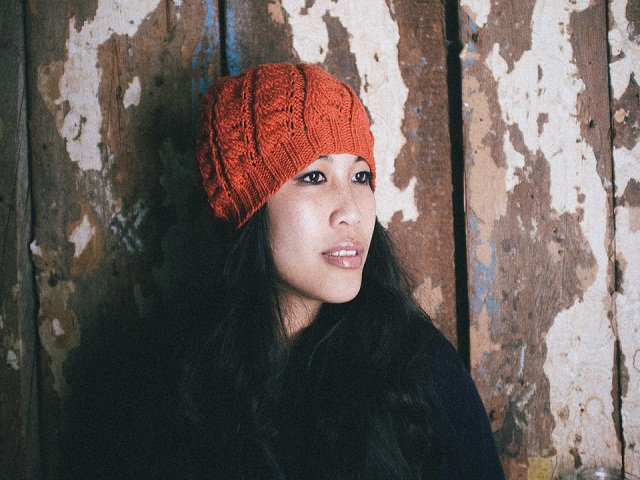ADVERTISEMENT
Filtered By: Lifestyle
Lifestyle
Ifugao women farmers shift to knitting stylish hats and scarves
By CHINA JOCSON

Teach them to knit, and they will be fed for a lifetime.
There are two sides to the Banaue Rice Terraces: the terraces themselves, and the Ifugao stewards who have maintained this source of national pride since their ancestors first carved them into the mountainside thousands of years ago. The world itself has put the terraces as a marvel, but its stewards are still, sadly, standing in its shadow.
According to Meredith Ramirez Talusan, co-founder of the Ricefield Collective, “It used to be that people in Ifugao can live entirely off their land but in the last few decades, they increasingly need other sources of income. They can’t survive with rice alone, many are moving away and the terraces are increasingly abandoned.”
The birth of Ricefield Collective
Talusan learned these realities while she was on immersion and doing research to complete her PhD in Comparative Literature requirements at Cornell University. While studying the relationship between the 'hudhud' poetry tradition and the landscape of the rice terraces, she cultivated a concern toward the plight of the Ifugaos and a sincere aspiration to help them.

A selection of the Ricefield Collective's hats and scarves.
This inspired the creation of Ricefield Collective, a US-based online knitwear company selling stylish knitted products to an international clientele. Alongside the Filipino-American Talusan, the company was also founded by Englishwoman Anna Maltz and Jean Mundiguing, a Filipina from Ifugao. The company's knitters are all Ifugao women.
“The project started out organically with me just bringing out knitting needles and teaching them how to knit,” explained Meredith. “Knitting is really portable so it's much more conducive to their specific way of life in terms of not having to set up facilities to do their work and them being able to knit anywhere.
“Some of our knitters have to walk more than an hour to get to the main road so it's good for them to be able to do their work both at home and at our workshop,” she added.
Meredith and Anna regularly visit the terraces to personally train and supervise the women, while Jean primarily organizes the villagers. Unlike the traditional Ifugao weavers who produce the colorful tapis of the tribe, the collective's knitters are women from farming communities whose skills are limited to cultivating the soil and have no weaving experience.
Knitting process
The process begins by training the Ifugao women how to knit for a week or so. Talusan recognized the varying skills of each woman—and while everyone is initially drafted for knitting, those who find the task to be a challenge are shifted to other tasks like rolling the yarn, cooking, or washing. Once one has learned the basics of knitting, she would then progress to patterns, and then to the designs. There are other jobs such as pre-washing the yarn and quality control.
Ricefield Collective pays each knitter per piece of finished garment, providing the women with a substantial source of income.
“We try to calibrate so that even our slowest knitter gets the standard day rate for working in the fields, which means that most of our knitters are able to earn well above that amount,” said Talusan.

Another sample of their finely-knit hats.
She added that currently, the enterprise is still in its infancy and the funds are just revolving. Once the profits start coming in, their ultimate goal is to share this with the community through long-term endeavors aimed at enriching their lives.
The Ricefield Collective produces mostly hats and scarves. Since it is based in the US, the group is trend-savvy and has a collection catering to all four seasons. Some of their patterns are inspired by traditions in the Ifugao region—for instance, the Ifugao’s weaving basket will be featured in their upcoming winter collection.
They are exclusively available online and offer free delivery to the Philippines; as they expand, they aim to be available locally. Immediate plans include using native fibers to make yarn, and training and employing more women to dye the fabrics and do the packaging in Ifugao.
“'Knit 4 Life' is our motto. Mainly, it expresses both that the people involved in the company are lifelong knitters and also that the women in Ifugao are knitting in order to have a better way of life,” Talusan sums up the enterprise. — VC/YA, GMA News
All photos courtesy of the Ricefield Collective
More Videos
Most Popular




